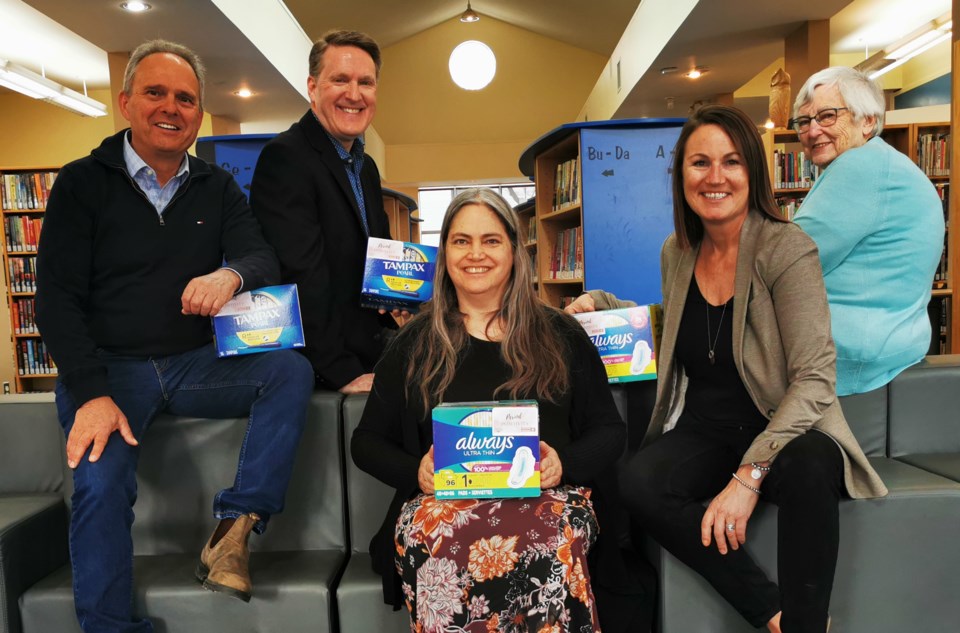Twenty per cent of Canadian women who menstruate may not be able to afford period products at some point over the next year.
That was the finding of a survey conducted last year by Environics Research on behalf of Women and Gender Equality Canada. The same survey found six in 10 say inflation has increased the likelihood of them not being able to afford period products.
“Generally, one in five people who menstruate do not have access to menstrual products,” Jodie Delgado, chief executive officer of the Springwater Public Library, said at the launch of the Period Positivity project on Tuesday at the Elmvale branch.
“With the rising economy, it’s becoming an even bigger problem," she added.
According to a library news release, lack of access to period products is one of many serious health inequities facing Canadian women and has gone unnoticed or ignored due to a lack of visibility and awareness.

Tuesday’s announcement brings Springwater’s public library up to speed with the Barrie Public Library and the Orillia Public Library, both of which introduced Period Positivity programs last year.
The Springwater library’s initiative received a $57,596 grant from the Shoppers Foundation for Women’s Health — the charitable arm of Shoppers Drug Mart — that will allow the Period Positivity project to provide free access to period products and services for those who menstruate.
The Period Positivity project is a three-part effort.
At launch, library branches will install dispensing machines stocked with free pads and tampons, and add to its collection of books focused on menstrual health.
Throughout 2024, branches will provide two specialty kits designed to meet specific menstruation-related needs, including the “all-season kit” featuring a reusable pad that will be available in March.
The final stage will be a “summer kit” to be launched in June 2024, which will include a bathing suit tankini top and period-friendly swimming shorts.
These kits will be available free of charge, Delgado said.
“These are reusable swim suits that have underwear in swimsuits that are made for people who menstruate so they don’t need to use pads or tampons,” she said.
To ensure widespread access to the kits, the library is partnering with several local community organizations: The Elmvale Food Bank, Sharewear, Elmvale District High School, the Barrie Native Friendship Centre, and the Georgian Bay Native Friendship Centre.
“We’re thrilled to work with our community partners in providing period kits,” Delgado said.
According to the government of Canada’s Menstrual Equity Fund (MEF) project, period poverty is defined as a lack of access to menstrual products, education, hygiene facilities, waste management, or a combination of those factors.
“Lack of access to menstrual products is closely linked to poverty and disproportionately impacts youth, single mothers, Indigenous peoples, Black and other racialized communities, immigrants, people experiencing homelessness, people living with disabilities, gender diverse individuals, and those who live in remote areas,” reads the MEF project
